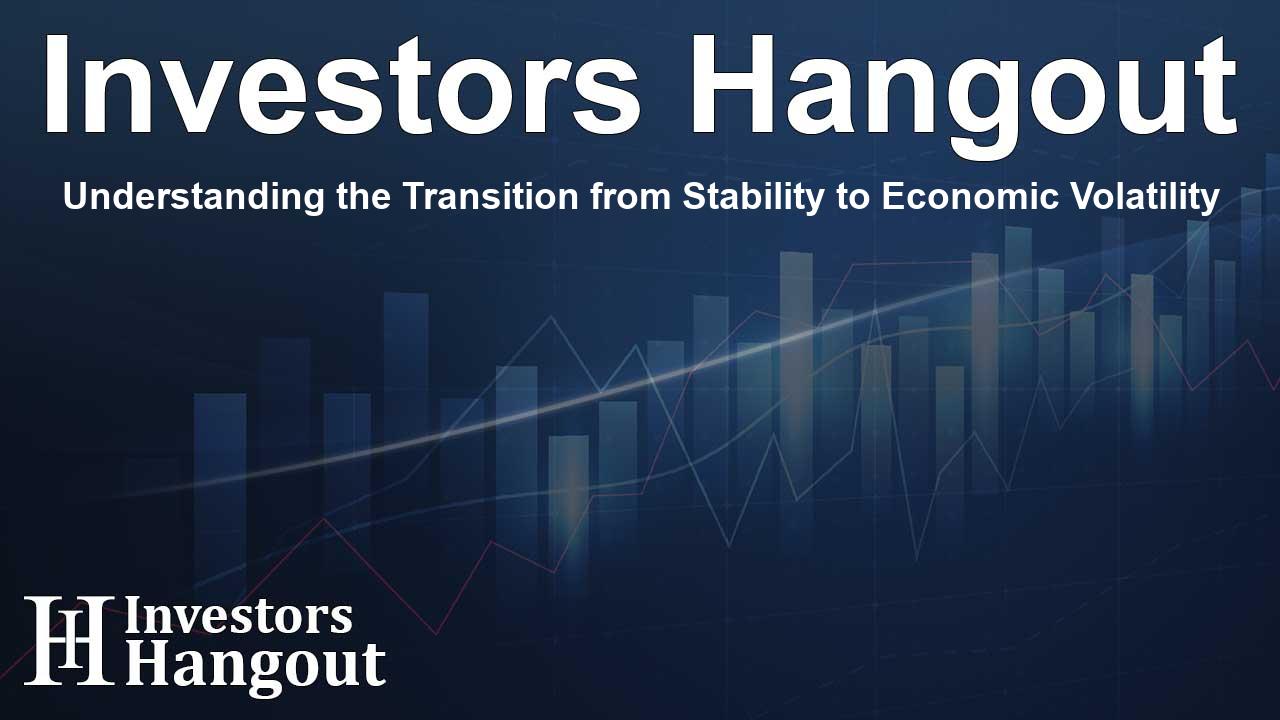Understanding the Transition from Stability to Economic Volatility

The Shift from a Stable Economy to Increasing Volatility
In the years preceding the pandemic, investors experienced a lengthy period known as the Great Moderation. This time was marked by relatively stable economic conditions, a reduction in recessions, and less frequent inflation crises, creating a climate in which many sectors of the economy thrived.
Understanding the Influence of Globalization
Globalization played a vital role in this era, granting corporations access to affordable labor and production materials that significantly enhanced their profits and operational capabilities. However, Liz Ann Sonders, chief investment strategist at Charles Schwab, suggests that this period of economic stability is over. She refers to the current economic landscape as the 'Temperamental Era,' bringing back memories of the volatile economic fluctuations witnessed from the mid-1960s to the early 1990s.
What Characterizes the Temperamental Era?
According to Sonders, we now face a landscape filled with unpredictable economic performance and inflation levels. The period following 2020 has seen extreme fluctuations in GDP growth, where sharp downturns are frequently followed by quick recoveries—reminiscent of trends from the last decades of the 20th century.
Inflation Dynamics: A Return to Volatility
The volatility of inflation has notably returned, evoking comparisons to the situation in the 1970s. At that time, premature declarations of victory over inflation by the Federal Reserve led to policy errors, contributing to two consecutive recessions in the early 1980s. Presently, the environment mirrors these uncertainties regarding inflation trends, amplified by ongoing shifts in supply chains and rising geopolitical tensions.
The Impact of Geopolitical Tensions on Supply Chains
As companies increasingly adopt strategies like nearshoring and enhancing regional diversification, they reshape supply chain management significantly. While these strategies promote operational resilience, they can also lead to higher production costs due to regional limitations. Ongoing geopolitical rivalries—especially between major powers—heighten concerns around potential trade restrictions and inflationary pressures.
The Economic Landscape: Facing New Challenges
Research conducted by ING highlighted the significant risk of experiencing higher and more volatile inflation, similar to the crises seen in the past decades. Various factors contribute to this risk, including shortages of essential materials spurred by the green energy transition and global conflicts. Additionally, the growing power of labor due to scarcity of workers also pushes wages up, resulting in a more complex economic environment.
Adapting Investment Strategies in a New Era
In light of these challenges, investors must strategize differently. The easy borrowing conditions that favorably impacted weaker companies during the Great Moderation are now part of history. Charles Schwab suggests that a focus on fundamental analysis will be essential. Metrics such as price-to-cash flow, price momentum, and return volatility should guide investors in stock selection.
Key Metrics for Investors
The price-to-cash flow ratio provides insights into a company's ability to sustain operations and fulfill financial responsibilities. Price momentum serves as a trend indicator, suggesting that historical performance may predict future directions. Furthermore, return volatility (often represented as Beta) gauges a stock's price stability, where lower levels signify less risk, making these metrics crucial in volatile times.
Frequently Asked Questions
What is the Great Moderation?
The Great Moderation refers to a period before the COVID-19 pandemic characterized by stable economic conditions, lower inflation, and fewer recessions.
What does the 'Temperamental Era' mean?
The 'Temperamental Era' describes today's unpredictable economic landscape, marked by heightened volatility in economic indicators and inflation rates.
How has globalization affected the economy?
Globalization allowed corporations to access cheaper labor and production materials, significantly enhancing profits during the Great Moderation.
What investment strategies should be adopted in a volatile economy?
Investors should focus on fundamental analysis using metrics such as price-to-cash flow, price momentum, and return volatility to navigate the current economic landscape.
How does geopolitical tension influence the economy?
Geopolitical tensions can disrupt supply chains, leading to trade restrictions, increased costs, and ultimately contributing to inflationary pressures in the economy.
About Investors Hangout
Investors Hangout is a leading online stock forum for financial discussion and learning, offering a wide range of free tools and resources. It draws in traders of all levels, who exchange market knowledge, investigate trading tactics, and keep an eye on industry developments in real time. Featuring financial articles, stock message boards, quotes, charts, company profiles, and live news updates. Through cooperative learning and a wealth of informational resources, it helps users from novices creating their first portfolios to experts honing their techniques. Join Investors Hangout today: https://investorshangout.com/
Disclaimer: The content of this article is solely for general informational purposes only; it does not represent legal, financial, or investment advice. Investors Hangout does not offer financial advice; the author is not a licensed financial advisor. Consult a qualified advisor before making any financial or investment decisions based on this article. The author's interpretation of publicly available data shapes the opinions presented here; as a result, they should not be taken as advice to purchase, sell, or hold any securities mentioned or any other investments. The author does not guarantee the accuracy, completeness, or timeliness of any material, providing it "as is." Information and market conditions may change; past performance is not indicative of future outcomes. If any of the material offered here is inaccurate, please contact us for corrections.